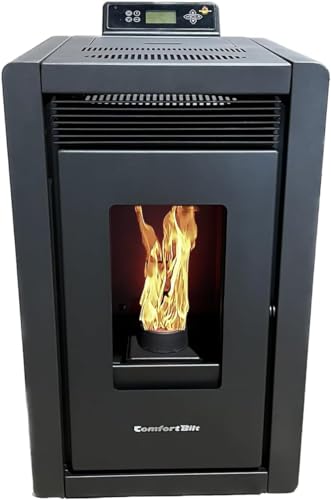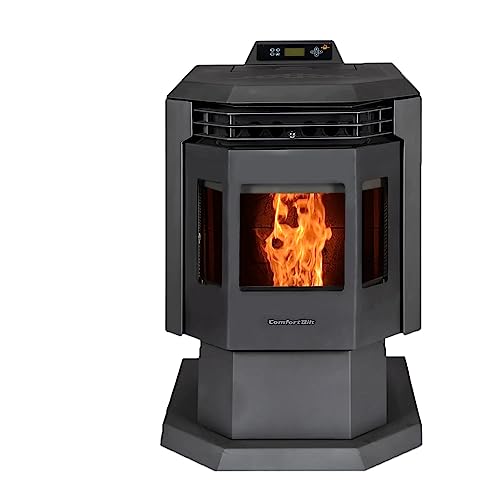What's The Job Market For Pellet Stoves For Rvs Professionals Like?
페이지 정보
작성자 Gertrude Monckt… 작성일 24-10-28 19:00 조회 6 댓글 0본문
 Pellet Stoves For RVs Vs Wood Stoves
Pellet Stoves For RVs Vs Wood StovesRVs provide a comfortable camping experience, however cold nights require a reliable heating source. Two options that are popular are pellet and wood stoves. stoves. Both options offer different benefits, but the right one for you will depend on your particular needs and preferences.
Pellet stoves make use of bio-based fuels that are renewable, made of recycled sawdust and wood chips. They are highly efficient and provide consistent heat. They are also easy to use and do not produce harmful emissions.
Heating that is cost-effective
Pellet stoves for RVs are an efficient alternative to propane-based heaters. They burn renewable biomass fuel, and boast a high combustion efficiency that can save you money over the long term. They also consume less electricity, which reduces carbon footprints and energy consumption. Pellet stoves are compact and can be used in conjunction with any standard propane tank. This makes them a good option for those looking to avoid the hassle of refilling and storage of propane tanks.
The capacity of a stove to heat a large space is one of its most significant features. A quality stove can warm the entire motorhome or camper. The top pellet stoves for RVs can provide up to 8,000 BTUs of heat, enough to keep you warm and comfortable during a camping trip. Some models come with thermostats that can be programmed to automatically switch the stove off and on according to your schedule. They can also notify you when the pellets are depleted or require cleaning.
Wood and pellet stoves are both popular options for RVs, and both provide excellent heating performance. These stoves are cost-effective, and they can be utilized in a variety of climates. Before you decide on a stove you must know the differences between the two types of stoves.
Wood stoves require firewood, which is carefully collected and stored. This can be a challenge for those who travel to remote areas. Wood also absorbs moisture from the air and cause issues in the interior of your RV. However you can find an array of wood composite fire logs pressed for your RV stove at online retailers. These logs will let you focus on your adventure instead of fueling.
Convenient cooking
If you are an avid camper and love cooking, you'll enjoy the ease of cooking on pellet stoves. These stoves are designed to extract the highest amount of heat from the fuel, leading to high energy efficiency and lower heating costs. They also have automatic ventless pellet stove feeding systems as well as thermostatic controls that ensure the same temperatures. They can also be used in times of emergency or during an outage of power to serve as a backup heating source.
Wood stoves are another popular option when RV camping. Wood stoves are a great alternative for boondocking, or camping without hookups. They require ongoing maintenance and regular cleaning to remove creosote and ashes. They also depend on firewood, which can be expensive in remote areas and is difficult to find. Moreover, they often require proper ventilation to stop the build-up of carbon monoxide and smoke within the camper.
Pellet stoves provide the same heating efficiency as wood stoves, and require less maintenance. They are also cheaper than gas heaters and produce less ash and particles. Pellet stoves are also more eco green than wood stoves because they function as an almost carbon-neutral source of energy.
Pellet stoves may be more convenient than wood-burning stoves, however, they still require power from an electrical source. Your stove will not function properly if your electricity fails. This could result in an unsafe situation. It's a good idea to have a backup generator or power-outage plan in place to ensure your security and warmth. Most wood and ventless pellet stove stoves are equipped with manual ignition or battery backup systems to avoid these issues.
Versatile
Wood pellet stoves are an excellent option for RVs since they are cost-effective and efficient in heating, while providing a cozy atmosphere. They can also be used as a backup in the event of a power outage. Certain models come with batteries that backup the system and ensures that the stove is always in operation. Pellet stoves are easy to operate and require little maintenance. It is crucial to keep in mind however that they require adequate ventilation and proper installation.
Unlike propane stoves, which introduce gases and moisture into the air, pellet stoves burn dry combustible materials which produces odorless, clean heat. They are also more efficient than traditional wood stoves and produce more heat at a faster rate. In addition to providing heating, ducted pellet stove stoves can be used to cook food, turning your RV into fully functional kitchen. This feature is especially useful in remote areas and can help you save money on eating out.
Pellet stoves are not only more affordable, but they are also safer than electric and gas models. The pellet stoves also emit less smoke, which reduces the risk of fire and indoor air pollution. You should be aware that they require electricity to run their automatic ignition systems and pellet stove furnace feed systems. They may also require more frequent refills of pellets than gas stoves.
Before installing a wood stove in your RV, you should consider some factors and limitations. You'll also need to store the wood close by and ensure that the RV has sufficient storage space for the stove hopper. Wood stoves also produce lots of heat, which can cause walls and ceilings to warp or blister. To avoid this, you should consider getting a stove with an insulation layer or a surface-protection kit.
Compact
Pellet stoves are small and easy to operate. They feature a powerful combustion process and an impressive heat output which makes them a great option for RVs. They distribute heat evenly which allows for a pleasant camping experience. You can easily regulate the amount of heat you wish to generate and maintain a constant temperature. The SoloWilder Camping Pellet Stove for example, has robust design and an optimized heating system making it an excellent choice for campers.
The pellets are placed in the fuel hopper before being put into the burner using an auger. The pellets are typically composed of sawdust and wood byproducts, but some stoves accept other biomass such as corn kernels or nutshells. The fuel is dense, which helps it burn more hot and cleaner as well as reducing smoke and waste emissions. The stoves are energy efficient and have high efficiency, ranging from 70 to 83 percent.
Most pellet stoves require minimum amount of maintenance, and are much easier to light and operate than traditional wood stoves. They can be noisy and they require a place to store pellets that are dry and cool. Additionally, they're electric and require power (not suitable for off-grid camping). If you are considering a stove that burns pellets, make sure you choose one with an energy-efficiency certificate.
One disadvantage of pellet stoves is that they cost more than traditional fireplaces with wood burning and require a large storage space. A pellet stove will consume a 40-pound bag of pellets every day and the bags could be costly. Additionally, they require electricity and may use up your backup battery.
Safety
Pellet stoves let you enjoy a crackling fire in your RV without having to store or haul firewood. They also produce less smoke and more ash than wood stoves and are much easier to light. They also provide a warm and comfortable atmosphere. It is important to understand the health considerations that come with using a stove made of pellets. Individuals with pre-existing respiratory conditions, young children, and older adults should take extra precautions and seek medical advice prior using one.
The majority of models come with an electronic control system that automatically feeds pellets into the combustion chamber. This lets them burn at a specific rate. Many of these stoves have a programmable thermostat to ensure that the heating is at the correct level. In addition, they have an automated cleaning system that draws up the accumulated clinker and ashes.
However, despite these modern features, a pellet stove still requires ventilation and electricity to operate. It might not function during a power loss. In these situations it's essential to have a backup plan for heating requirements, such as purchasing a generator.
Another issue with pellet stoves is that they utilize the process of combustion that releases toxins into the air, including carbon monoxide. This is a major issue for people suffering from chronic respiratory illnesses, such as asthma or COPD. Carbon monoxide detectors are vital for homes. They should be installed in the vicinity of bedrooms, on every level of the home and checked regularly.
Pellet stoves can be a great option for camping, especially in areas that have harsh winter weather. They are affordable and easy to operate, however they do require power to operate. If you're planning to camp off-grid for a long time it's essential to plan ahead and ensure you have enough wood to fuel the stove.

- 이전글 Who Is Chiminea Fire Pit And Why You Should Consider Chiminea Fire Pit
- 다음글 7 Simple Tricks To Totally Cannabis-Infused ADHD Assessment Private
댓글목록 0
등록된 댓글이 없습니다.

